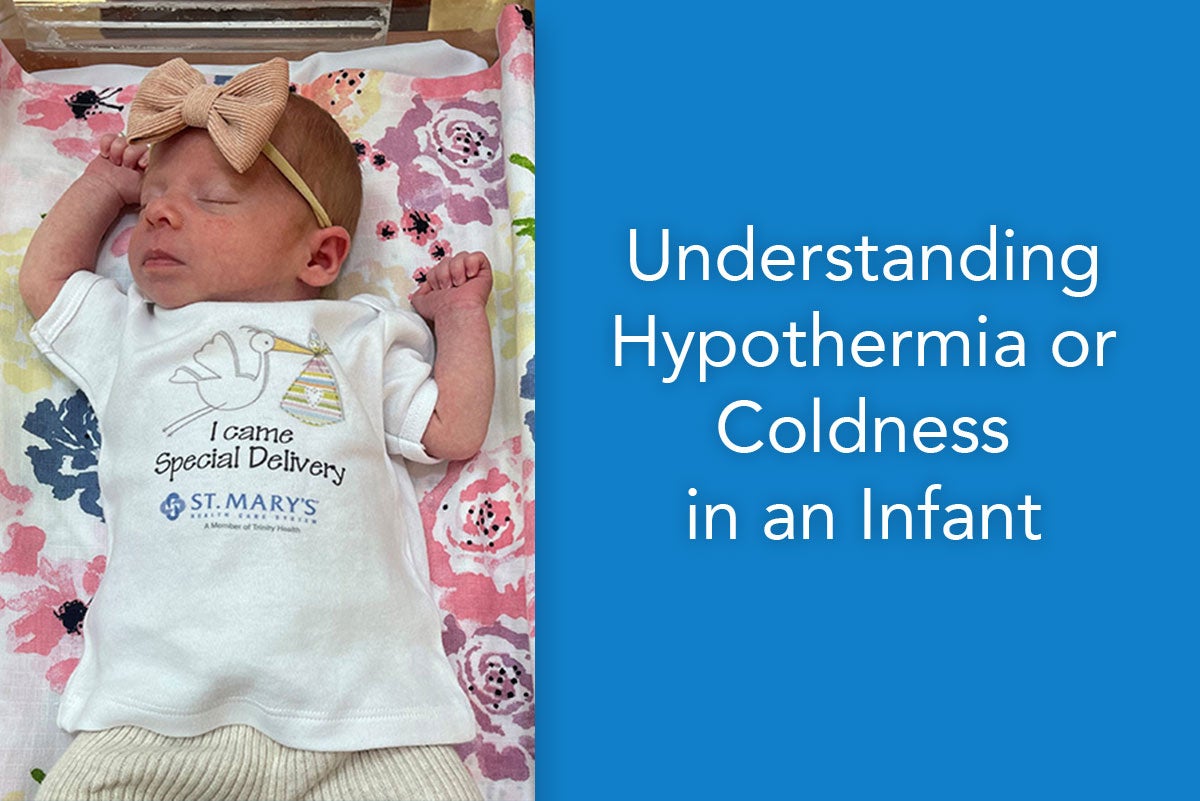One of St. Mary's primary focus areas is women's and children's health.
One of St. Mary's primary focus areas is women's and children's health. In this series of blogs, Dr. Charles F. Potter, a board-certified neonatologist-perinatal medicine specialist who provides care to infants at St. Mary's, answers questions about conditions that can affect babies (and moms in some cases) and discusses going home after delivery. We hope you find this series educational and invite you to learn more about delivering at St. Mary's.
What is hypothermia?
Newborn infants are able to produce their own heat and normally have a temperature over 36.5 C or 97.7 F. Their ability to stay warm, however, can be overwhelmed by the environment, and their temperatures can decrease to unsafe levels. This is especially seen in small infants and premature infants.
What can cause hypothermia?
Infants can rapidly lose heat through evaporation. It is important to dry an infant right after birth and keep them dry. Cold surfaces also can absorb an infant’s heat while cold air currents readily lower an infant’s temperature.
How do you measure an infant’s temperature?
Infants usually have their temperatures measured every couple of hours by placing a thermometer in the axillary region or armpit while the arm is held close to the body to prevent heat loss. Some thermometers use an infant’s skin/forehead temperature with good results.
Can hypothermia harm a baby?
Cold infants are at risk for low blood sugar, breathing difficulties, metabolic acidosis, and jaundice.
What are the symptoms of hypothermia in an infant?
Cold infants have cool, pale extremities, decreased movement and alertness, poor feeding, and respiratory difficulty. A baby’s blood sugar can also be low.
How do we prevent and treat hypothermia in a newborn?
In the delivery room, it is important to start skin-to-skin bonding with the mother if possible, dry the infant, and possibly place a hat on their head. Warm blankets, thermal wraps, and/or radiant warmers are used as needed, especially if the infant is at high risk of becoming cold. Bathing is delayed for several hours and then performed quickly with warm water.
What is our goal?
First and foremost, we want to protect the health of mother and baby! We strive to make your birth experience at St. Mary’s Hospital as joyful as possible as a new life is brought into your family. We strive to include you in our team, which is dedicated to providing unsurpassed medical treatment with compassionate and individualized care.
Learn more about St. Mary’s Family Birth Center in Athens
About Charles Potter, MD
Dr. Charles F. Potter is a board-certified neonatologist-perinatal medicine specialist, a physician who specializes in the care of infants while they are in the hospital. He received his medical education from the Medical College of Wisconsin, completed his internal medicine residency at the University of Michigan Hospitals, and completed his specialty fellowship at Case Western Reserve University School of Medicine in Cleveland, Ohio.

